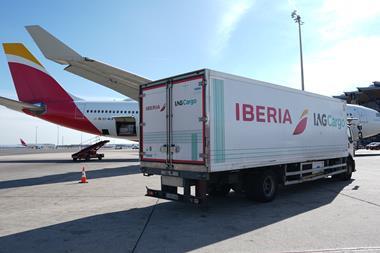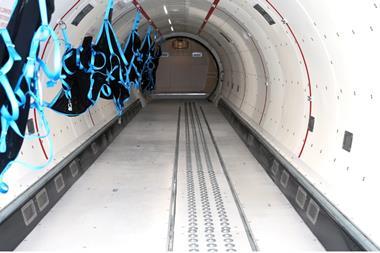Plans for a new Thames estuary airport to the east of London – favoured by London mayor Boris Johnson - have been dropped from a shortlist of options for providing additional UK airport capacity by 2030.
The so-called “Boris Island” proposal was rejected by the government-sponsored Airports Commission following a detailed study.
The commission concluded that the Thames project has “substantial disadvantages that collectively outweigh its potential benefits”.
A rejection of the Thames estuary proposal focuses the emphasis on three rival proposals to expand airport capacity in the UK south east: a second runway for Gatwick, an extension of Heathrow’s existing northern runway or a new, third runway at Heathrow.
Johnson, a high profile personality politician who is seen as a potential prime minister, called the decision “short-sighted,” but said plans to expand either Gatwick or Heathrow airports would fail.
Airports Commission chairman Sir Howard Davies said: “We are not persuaded that a very large airport in the Thames estuary is the right answer to London’s and the UK’s connectivity needs.
“While we recognise the need for a hub airport, we believe this should be a part of an effective system of competing airports to meet the needs of a widely spread and diverse market like London’s.”
Davies continued: “There are serious doubts about the delivery and operation of a very large hub airport in the estuary. The economic disruption would be huge and there are environmental hurdles which it may prove impossible, or very time-consuming to surmount.
“Even the least ambitious version of the scheme would cost £70 billion to £90 billion with much greater public expenditure involved than in other options – probably some £30 billion to £60 billion in total.”
Perhaps with an eye to a further verbal broadside from the London mayor, Davies added: “There will be those who argue that the commission lacks ambition and imagination. We are ambitious for the right solution. The need for additional capacity is urgent. We need to focus on solutions which are deliverable, affordable, and set the right balance for the future of aviation in the UK.”
Heathrow chief executive John Holland-Kaye said: “We have always agreed with the mayor that Britain needs a successful hub airport to compete in the global race for jobs and growth.
“Heathrow is now the only hub left in the race. We would like to work with the Mayor to deliver Heathrow expansion in a way that benefits the whole country while reducing noise impacts for local people compared to today.”
Gatwick Airport chief executive Stewart Wingate said: “This is an important juncture in the aviation debate because now Britain’s choice is clear; expand Gatwick and support genuine competition, lower fares and greater choice for passengers or expand Heathrow and return to the stale monopoly of the past and watch the cost of going on holiday, travelling for business and exporting goods and service go up.
“We believe Gatwick has the strongest case. It is the only option left on the table that can be delivered with more certainty than either of the Heathrow options, and it can be delivered without the significant environmental impacts expansion at Heathrow would inflict on London. It can be delivered faster than any other option, and at low cost and low risk.”
UK shippers also welcomed the news. Chris Welsh, the Freight Transport Association’s director – global and European policy said: “Air freight accounts for about 40 per cent of UK imports and exports by value and is an essential mode of transport for many industry sectors.
"FTA would like to emphasise to the Airports Commission that air cargo is crucially important to British businesses as importers and exporters, and is a key enabler for growth and the future success of the UK economy.”
The British International Freight Association’s (BIFA), the trade association for UK freight forwarders and logistics providers, welcomed the decision.
BIFA director general Robert Keen commented: “BIFA’s members hope that the decision will allow the commission to focus on the three most appropriate and sustainable solutions in the lead up to its final report in the summer of 2015.
“BIFA will continue to submit our thoughts to the commission relative to the constraints imposed by capacity limitations, UK global connectivity, the importance of air freight and the key facilitative role played by the freight forwarder.”
Did you find this article of interest, if so why not register for a FREE digital subscription to Air Cargo News? - Find out more
Interested in Freighters, if so why not register to attend the Freighter & Belly Cargo World Conference ? - Find out more










